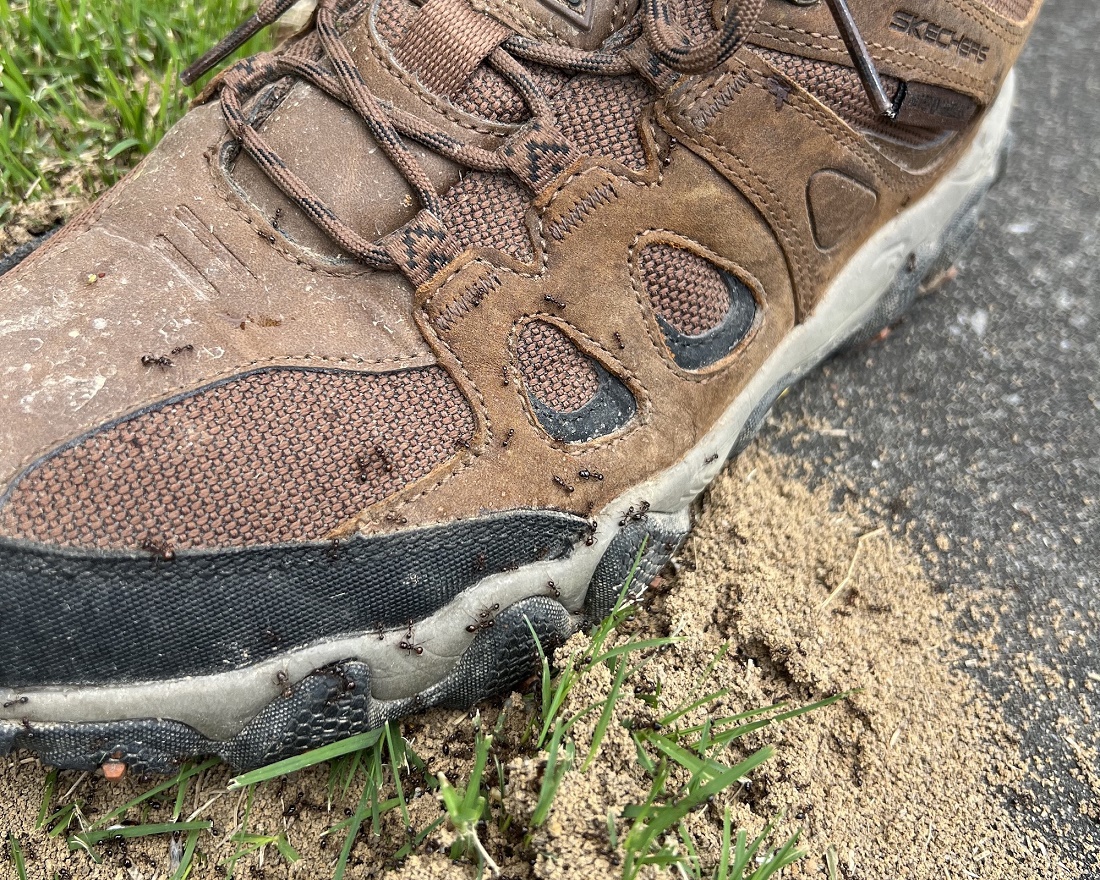
UT Extension Specialist Offers Solutions for Managing This Pest
JACKSON, Tenn. — An Extension specialist with the University of Tennessee Institute of Agriculture (UTIA) has observed a significant increase in fire ant colonies in West Tennessee, posing a threat to members of the community seeking to enjoy local lawns, school yards, parks, athletic fields and golf courses.
“Fire ants are more than just painful pests,” said Kim Brown, turfgrass and pesticide Extension specialist at the West Tennessee AgResearch and Education Center in Jackson. “These insects are easy to disturb and can be difficult to manage, causing serious stings and unsightly mounds in backyards and other outdoor areas.”
Brown said the most effective way to manage fire ants is to control the queen by using industry-standard baits, which can reduce mounds by 80% to 90% when used according to label.
“Fire ant bait contains insecticide at low rates and has no residual activity. This makes it the perfect option for those with children and pets. It is not recommended to try home remedies such as grits, club soda, molasses, boiling water or flammable fluids. These methods can either be ineffective or potentially even dangerous,” said Brown.
Bait should be applied when the ants are foraging, or actively leaving the mound in search of food. Brown said the preferred method of determining if ants are foraging is to put a small potato chip or hot dog near a mound. If the food attracts ants within 30 minutes, it is an ideal time to apply bait.
“All you have to do is sprinkle the bait as directed around the mound. The ants will carry the bait inside where the queen will consume it, eliminating the colony from the inside. Some baits can take six to eight weeks to work while others can control the colony within three days. It is important to refer to the label for specific information,” said Brown.
While individually treating mounds can be an effective way to exterminate above ground fire ant colonies, broadcast treatments using a hand-powered spreader can eliminate colonies that might not be visible at the time of application.
“By the time a mound is formed, the colony is already several weeks old and the population will only continue to increase,” said Brown. “Broadcast applicators allow you to administer bait across your entire yard in a very short time, eliminating colonies before they can expand. However, it is important to apply according to label and to not overapply, which is easy to do when using hand-powered spreaders.”
While a single sting is painful yet seldom life-threatening, allergic reactions and repeated stings have been known to cause doctor’s visits and hospitalization. With mound populations continuing to grow across West Tennessee, Brown said it is increasingly important to stay proactive in managing these pests.
“Bait is effective, safe and easily purchased at your local lawn and garden store. Some popular brands include Amdro, Advion, Distance, Extinguish Plus, Extinguish Professional and Siesta Insecticide. A little prevention can truly go a long way,” said Brown.
For more information on fire ant control, please visit fireants.tennessee.edu.
Through its land-grant mission of research, teaching and extension, the University of Tennessee Institute of Agriculture touches lives and provides Real. Life. Solutions. utia.tennessee.edu.